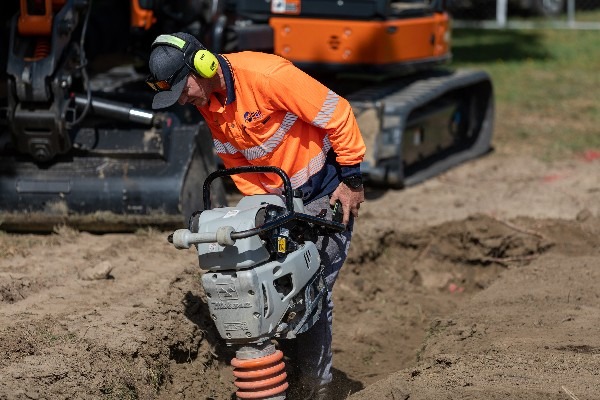Civil contracting sectors are relieved the Government has finally opened the country up to skilled civil construction trade roles through its controversial Immigration New Zealand Green List after several years of closed borders.
Pleased with the news, CCNZ chief executive Alan Pollard says the inability to recruit workers from overseas has hamstrung the industry at the very time it needed to construct and maintain the country’s essential infrastructure networks.
“We recently met with the Minister of Immigration and his officials to explain the need for skilled civil tradespeople, who play a vital role in constructing our transport and water networks, alongside our other essential infrastructure like ports and public spaces.”
Pollard says the country’s shortage of skilled civil construction workers is well-documented, and has impacted projects requiring specialist capability and experience, and the lack of skilled workers had been the industry’s number one challenge for several years.
The changes mean Green List pathways for residence for skilled civil construction machine operators, drainlayers, site supervisors and truck drivers.
“These are rewarding, well-paying jobs with great benefit for our communities. With these changes, skilled civil construction workers now have long term prospects, and can build a life for themselves here. I’m really looking forward to seeing the results their contribution brings.”
However, there were still ‘significant improvements’ that could be made to overall immigration policy, says Pollard and the next step should be a co-ordinated international campaign to recruit top international talent that leveraged our global status and international networks.
The Crane Association also welcomes the new Green List addition.
“We have been working hard to highlight the situation for our industry, where skilled and experienced operators are needed from overseas to fill the many vacancies we have across our membership,” says association chief executive, Sarah Toase.
“Training and employing locally is important for our members, but won’t solve our immediate need for skilled, qualified, experienced operators. These are people who have been in the industry, qualified and have experience on larger cranes, specialist cranes and are experienced at working on complex lifts.”
CANZ has been highlighting the skilled labour shortage through various channels to the government, resulting in operators being added to this list in the announcement, she adds.
National road freight association Transporting New Zealand says the new pathway for migrant truck drivers is a relief for struggling transport companies, and it follows a recent meeting between Transporting New Zealand and Minister Wood to discuss the impact of labour shortages on the trucking industry and wider economy.
However, association chief executive Nick Leggett drivers says the terms of the residence pathway still need to be developed.
“As always, the devil will be in the detail, and we’ll be working with Government officials and other industry participants to ensure this residence pathway delivers for the sector.”


Parting words from Jeremy Sole- a final column